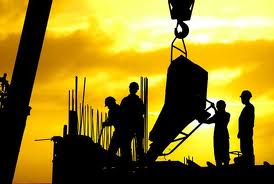By Mark Baber
June 19 – Qatar has moved swiftly to reassure the world’s football community that construction is progressing on stadia for the 2022 World Cup, despite the political, economic and social isolation attempts by its neighbours led by Saudi Arabia and the UAE.
Qatar’s Supreme Committee for Delivery & Legacy has published an article on its website emphasising that construction is “advancing rapidly across all the tournament stadium sites”.
With the Khalifa International Stadium having just opened, “seven more stadiums are currently in different stages of construction, with Al Wakrah Stadium set to be one of the next venues to be completed at the end of next year. The stadium’s progress has already seen 80 per cent of the concrete poured and 100 per cent of the columns in level two completed. The Al Bayt Stadium in Al Khor City has seen over 70 per cent of precast elements completed, while 94 per cent of the foundations are in place at the Al Rayyan Stadium,” said the article.
“Qatar Foundation Stadium in Doha’s Education City is scheduled for completion at the end of 2019, while Al Thumama Stadium will be completed in 2020. Construction work is also underway at both the Lusail Stadium and Ras Abu Aboud Stadium.”
“We are moving ahead rapidly with construction across all of our stadium and infrastructure sites for the tournament,” SC Competition Venues Executive Director Ghanim Al Kuwari told sc.qa.
The effect of the current blockade on Qatar and how this will effect construction going forward is unclear, with many of the stadiums clearly still at an early stage.
The political situation does not look to be resolving itself with Qatar’s foreign minister Sheikh Mohammed bin Abdulrahman Al Thani declaring yesterday that Doha will not negotiate with Arab states that have cut economic and travel ties with the country unless they reverse their measures.
His UAE counterpart Anwar Gargash, UAE’s minister of foreign affairs, responded saying Qatar’s diplomatic isolation could “last years”, telling journalists: “We do not want to escalate, we want to isolate.”
What is clear is that Qatar can sustain its economy without trade with its neighbours, as most of its trade is already with countries outside the region. However, Saudi companies such as the Binladin Group are playing a major role in infrastructure projects such as the new metro system and many construction materials came across the border from Saudi Arabia.
The UAE is the world’s largest exporter (19% of the world’s trade) of Gravel and Crushed stone and Qatar is its biggest export market with 66%. In fact in 2015, 99.5% of Qatar’s imports of gravel and crushed stone came from the UAE.
Qatar’s minister of economy and commerce Sheikh Ahmed bin Jassim bin Mohamed Al Thani told Qatari TV on Sunday that trade in the country is running as usual as the authorities had responded quickly to the closure of the borders by getting products through sea and other means.
The effects of the blockade on Qatar’s construction industry and World Cup projects will depend on the extent to which isolation efforts can be circumvented (eg via Oman), to what extent increased in domestic production can make up for shortfalls and the stock levels of essential materials.
Contact the writer of this story at moc.l1744468538labto1744468538ofdlr1744468538owedi1744468538sni@r1744468538ebab.1744468538kram1744468538

